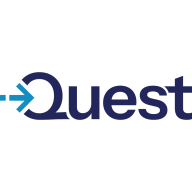

Spotlight and Foglight for Databases are direct competitors in the realm of database performance monitoring solutions. While Spotlight stands out for its ease of integration and user-friendly interface, Foglight for Databases offers comprehensive monitoring features, making it a stronger choice for those needing detailed control.
Features: Spotlight provides real-time diagnostics, intuitive visual display interfaces, and excellent integration capabilities, offering quick insights. In contrast, Foglight for Databases offers deep-level performance monitoring and analytics, real-time activity screens, and the ability to monitor multiple database platforms, providing extensive insights into database environments.
Room for Improvement: Spotlight could enhance its deep-level analytics and expand its feature set to match more complex needs. Additionally, improving customization options could make it more versatile. Foglight for Databases could benefit from a simpler deployment process, smoother user interface improvements, and potentially reducing the resource intensity of its monitoring processes.
Ease of Deployment and Customer Service: Spotlight is known for its straightforward deployment, integrating well with existing systems, and offers effective customer service. Foglight for Databases, while a bit more complex to deploy, excels in configurability and provides dedicated support, ideal for organizations needing detailed customization.
Pricing and ROI: Spotlight generally presents a more affordable initial setup cost, offering rapid ROI due to its efficiency in problem-solving. Conversely, Foglight for Databases, though higher in initial cost, promises long-term value with detailed analytics and a robust feature set, making it suitable for complex environments seeking higher ROI.
| Product | Market Share (%) |
|---|---|
| Foglight for Databases | 3.9% |
| Spotlight | 4.0% |
| Other | 92.1% |

| Company Size | Count |
|---|---|
| Small Business | 2 |
| Midsize Enterprise | 2 |
| Large Enterprise | 10 |
| Company Size | Count |
|---|---|
| Small Business | 2 |
| Midsize Enterprise | 1 |
| Large Enterprise | 4 |
Foglight for Databases offers comprehensive monitoring with real-time activity screens and adaptive baselines. It provides a 360-degree overview and efficient UI, requiring no custom scripts, aiding in proactive issue identification and resolution before impacting end users.
Foglight for Databases is a robust tool for monitoring across multiple platforms, including SQL and Oracle. It provides features like the "Morning Coffee" dashboard and SQL Performance Investigator, enabling effective workload analysis and historical investigation. Despite some challenges with sluggish performance on large data volumes and excessive non-critical alerts, it remains a preferred choice for its ability to support proactive management and resource planning. Users appreciate its centralized view of extensive database systems, enabling swift detection and resolution of issues in real-time.
What are the key features?Foglight is extensively implemented in industries managing extensive database systems, handling numerous servers to ensure availability and performance. It assists businesses in resolving blocking and locking deadlocks, crucial for maintaining smooth operations in production and development environments.
Spotlight efficiently facilitates database monitoring, performance tuning, and troubleshooting with features that enhance problem isolation and long-term capacity planning. While valuable for API development, improvements in virtualization support and pricing could elevate its appeal.
Spotlight empowers users with capabilities such as alerting processes and comprehensive dashboards, making it an essential asset in analyzing historical data and time monitoring to identify problems. It integrates seamlessly with source control like GitHub and supports authentication, streamlining design processes and facilitating root cause analysis with drill-down capabilities. Primarily used for identifying indexing, long-running processes, and other performance issues, Spotlight aids API design through its daily monitoring capabilities, ensuring smooth operations. It currently has room for enhancements, particularly in support for Hyper-V virtualization overhead, webhooks, and API advancements. Pricing adjustments and improvements in custom dashboards, especially for backup reports, would increase user satisfaction.
What are Spotlight's key features?Companies in diverse sectors utilize Spotlight for its robust database monitoring and problem-solving capabilities. Its integration with tools like GitHub allows software development teams to streamline processes. Finance and tech industries leverage its performance tuning features to ensure optimal database operations, while organizations focused on API development benefit significantly from its detailed monitoring and alerting functionalities.
We monitor all Database Development and Management reviews to prevent fraudulent reviews and keep review quality high. We do not post reviews by company employees or direct competitors. We validate each review for authenticity via cross-reference with LinkedIn, and personal follow-up with the reviewer when necessary.